In the world of client portals, you won’t find many household names. There’s no Slack or Zoom that instantly springs to mind. Instead, there’s a quiet but steady group of providers who’ve been supporting secure client communication for years. Among these, Clinked stands out as one of the earliest platforms dedicated exclusively to managing the client experience.
But what exactly is Clinked, how does it operate, and is it the right fit for your business? Let’s break it down.
What is Clinked?
Clinked is a cloud-based client portal and collaboration platform designed to streamline communication between businesses and their clients. It offers a centralized space where teams can share files, manage projects, and engage in real-time discussions, all within a secure environment.
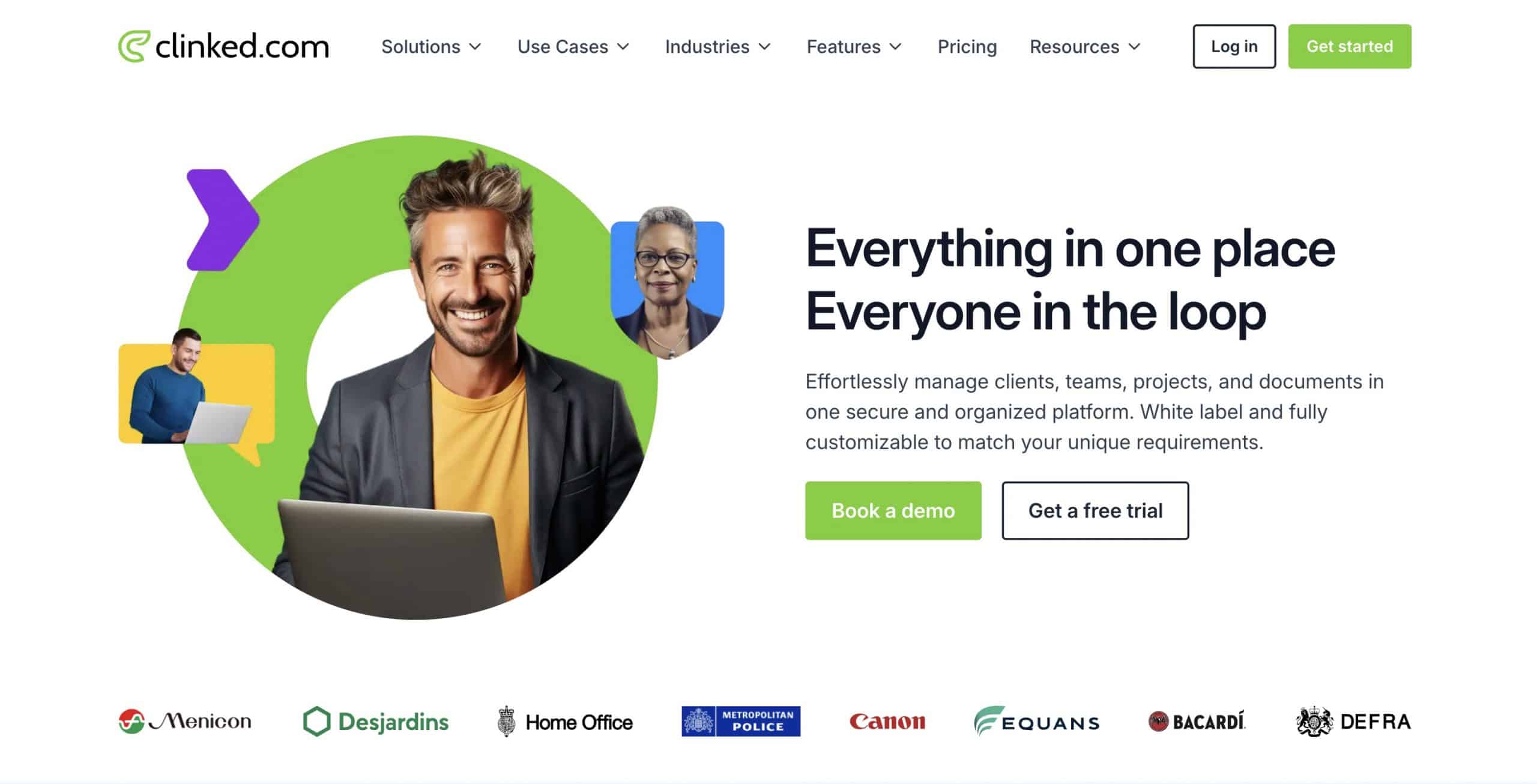
What is Clinked Used For?
Client & Team Collaboration
Clinked facilitates seamless collaboration by providing tools like group chat, discussions, and content commenting. Teams can work together efficiently, ensuring everyone stays informed and aligned.
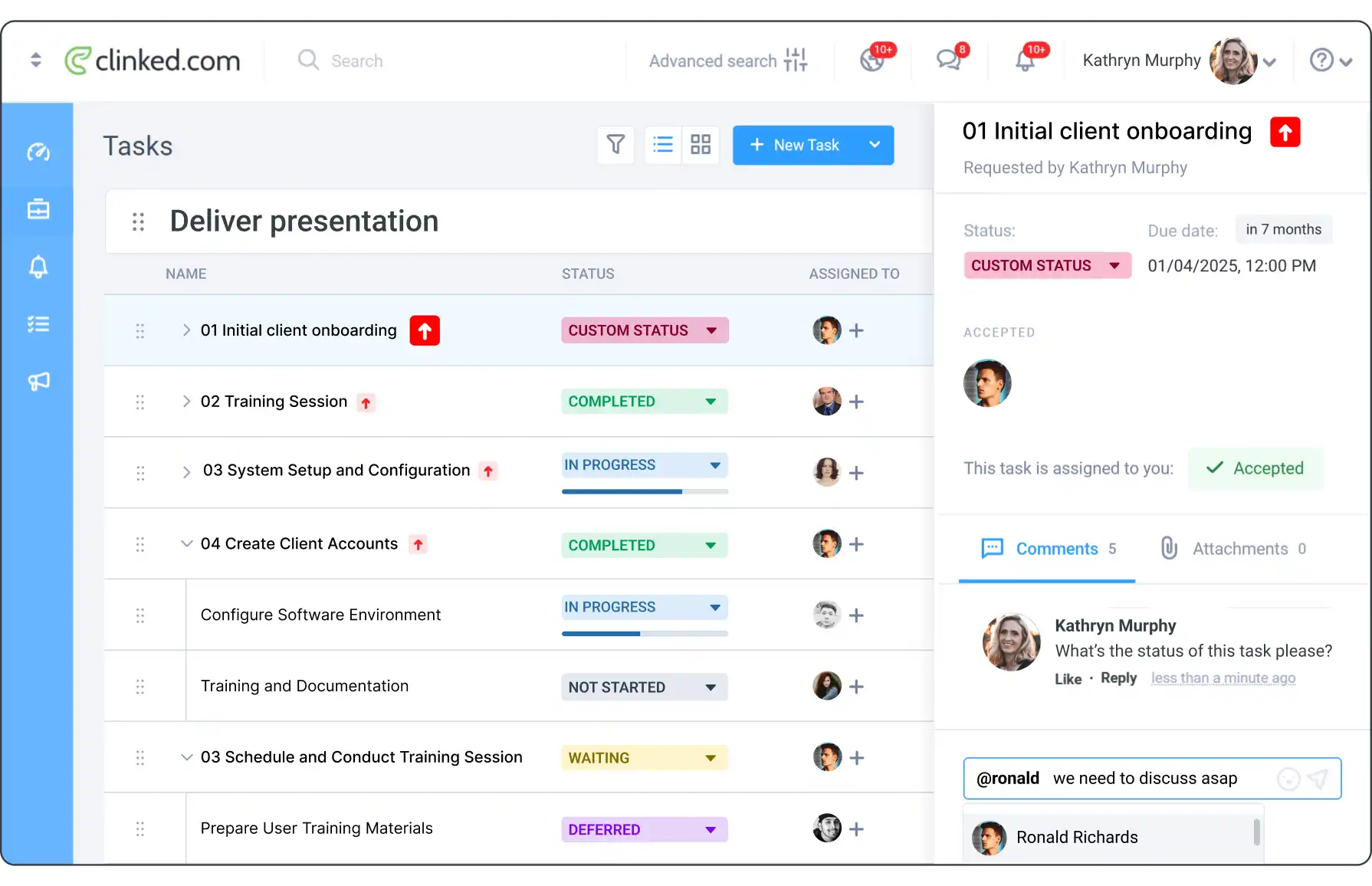
Project Management
With features such as task management, shared calendars, and Kanban boards, Clinked helps teams plan, assign, and track tasks, ensuring projects stay on schedule.
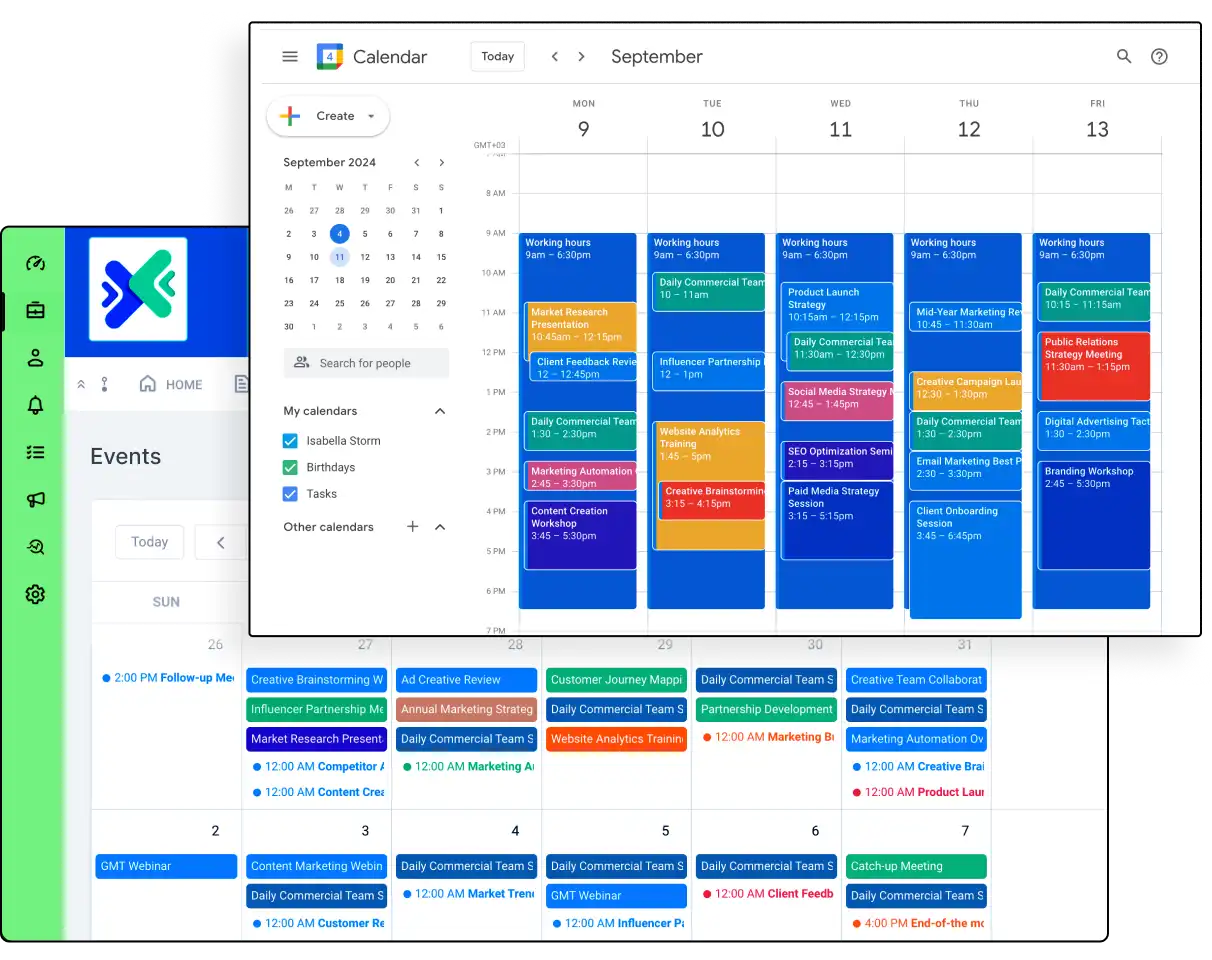
Secure File Sharing & Storage
Clinked offers robust file sharing capabilities with version control, document watermarking, and instant file viewing. All data is protected with 256-bit SSL encryption, ensuring secure storage and access.
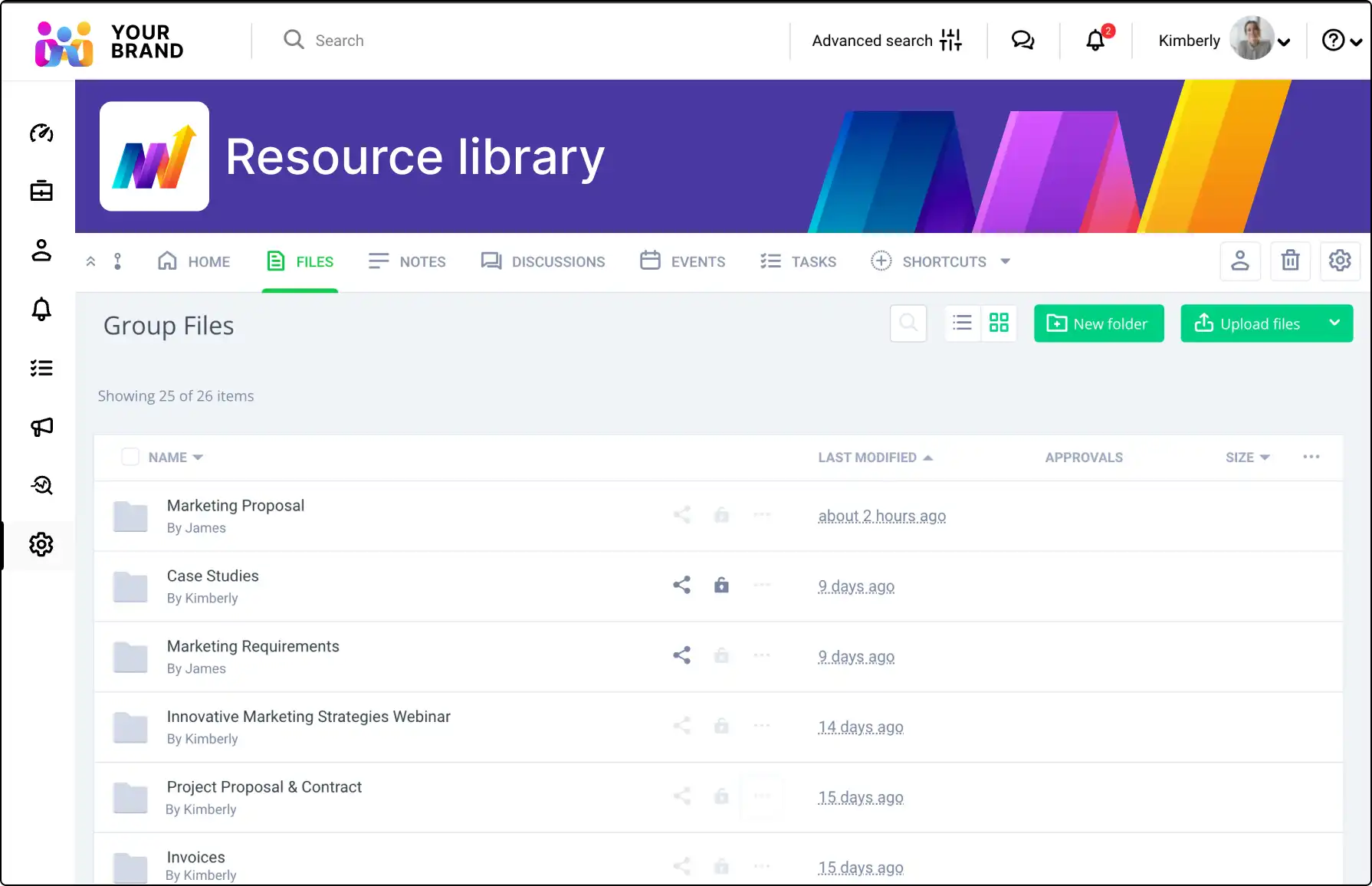
White-Label Branding
Businesses can customize their Clinked portal with their own branding, including custom domains, logos, and color schemes, providing a personalized experience for clients.
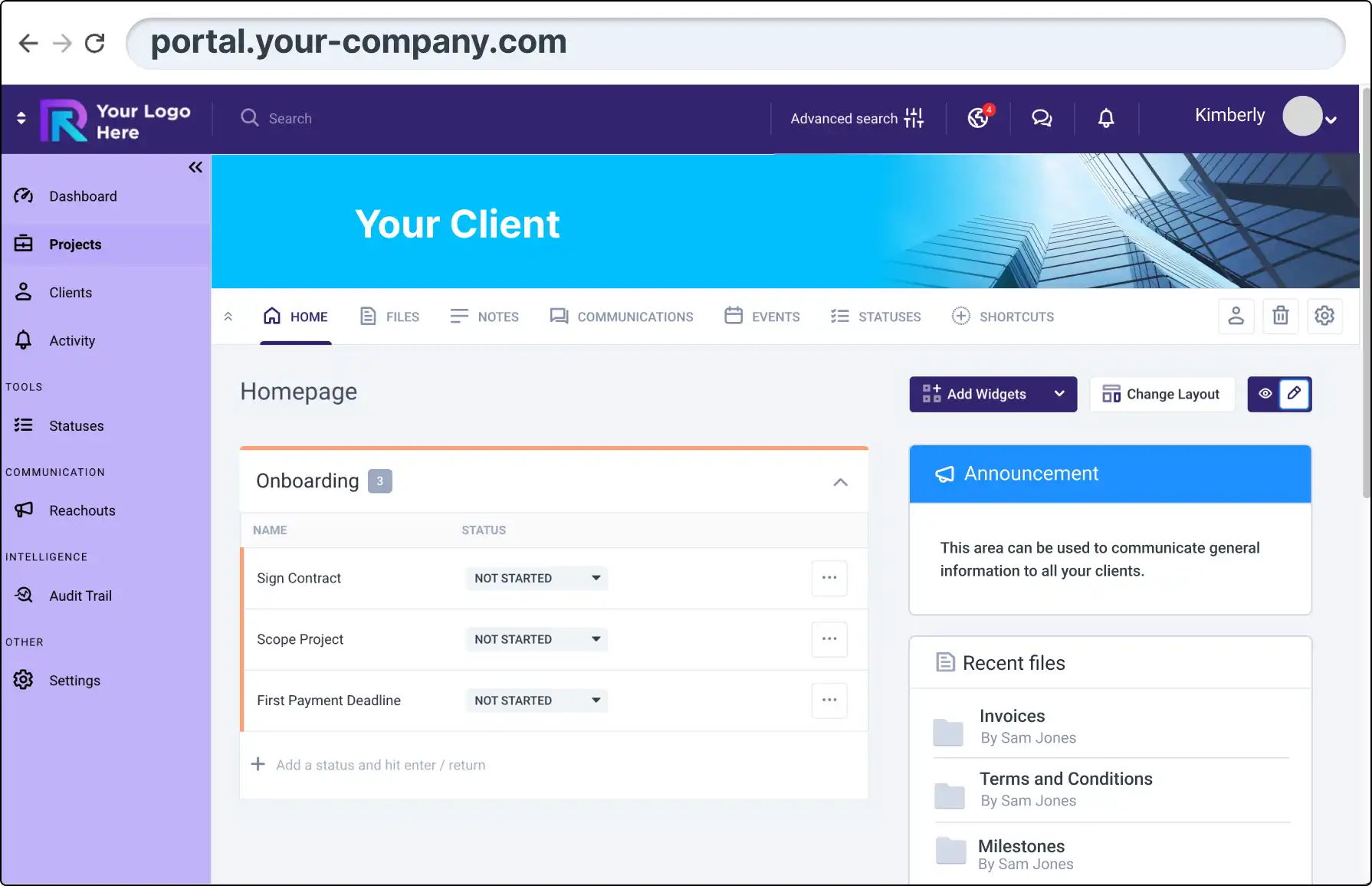
Who Uses Clinked?
Clinked caters to a diverse range of industries, including:
- Financial & Legal Firms: Secure document sharing and compliance features make it ideal for handling sensitive information.
- Consulting & Coaching Businesses: Facilitates client communication and project tracking.
- Marketing & Creative Agencies: Supports collaboration on creative projects with clients.
- IT & Software Development Teams: Enables efficient project management and code sharing.
- Education & Training Providers: Allows for sharing educational materials and tracking progress.
- Real Estate & Property Management: Manages property documents and client interactions.
- Nonprofits & Membership Organizations: Coordinates events and shares resources with members.
What are the Main Features of Clinked?
Customer Portals
Clinked allows you to create dedicated customer portals, providing clients with secure, personalized access to important documents, updates, and conversations. These portals help streamline interactions, reducing email clutter and ensuring clients can always find what they need. They also enhance client satisfaction by offering transparency and quick, easy access to information.
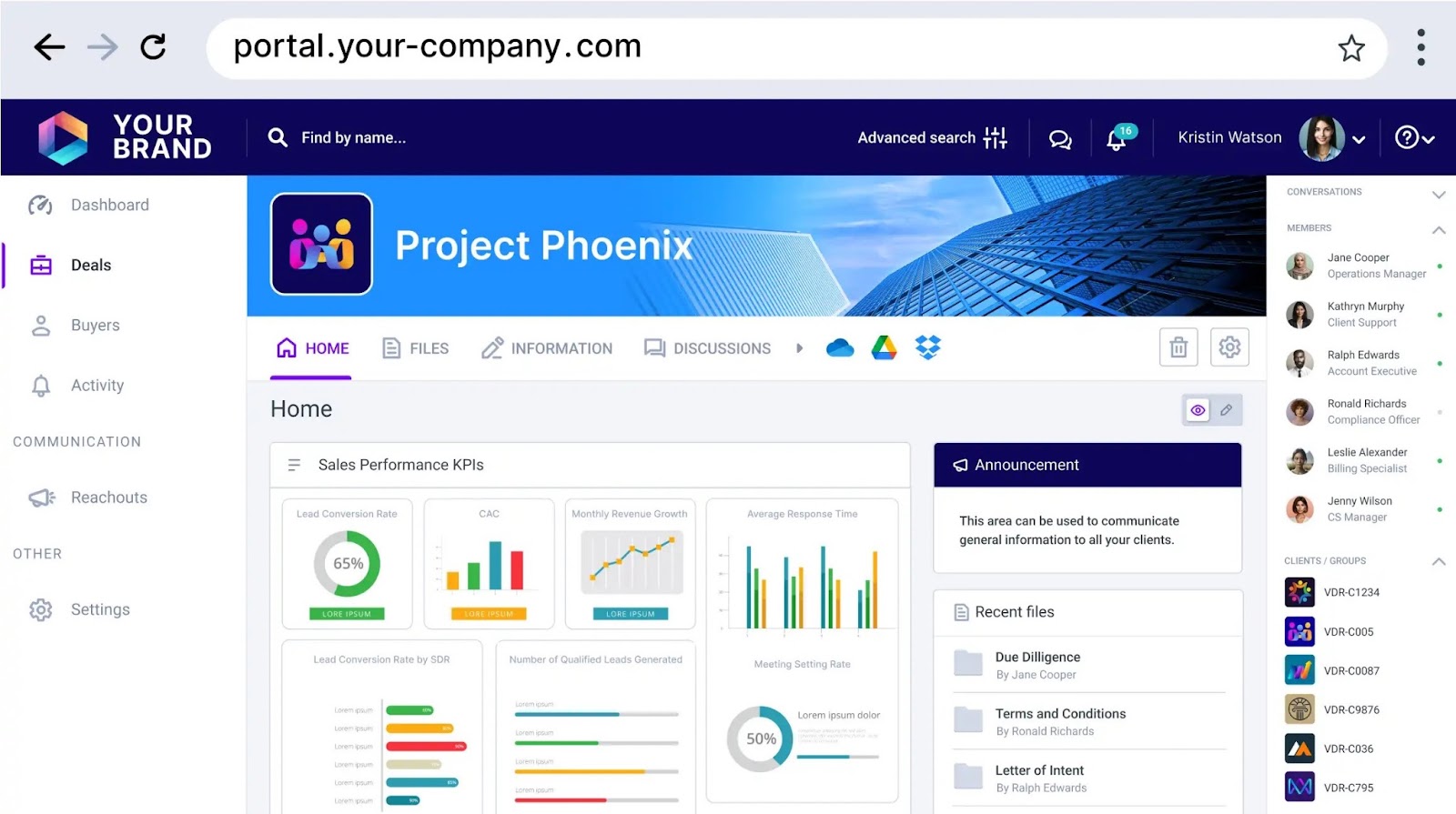
File Sharing & Document Management
With Clinked, secure file sharing becomes effortless. You can upload documents, maintain different versions, set detailed access permissions, and instantly preview files. Additionally, features like document watermarking and audit trails ensure your confidential information stays protected and traceable.
Group Chat & Messaging
Clinked simplifies communication with built-in group chat and private messaging features. Your teams can communicate instantly, discuss projects, or quickly address client inquiries—all within a centralized, secure environment. This reduces reliance on external messaging apps and helps keep conversations organized.
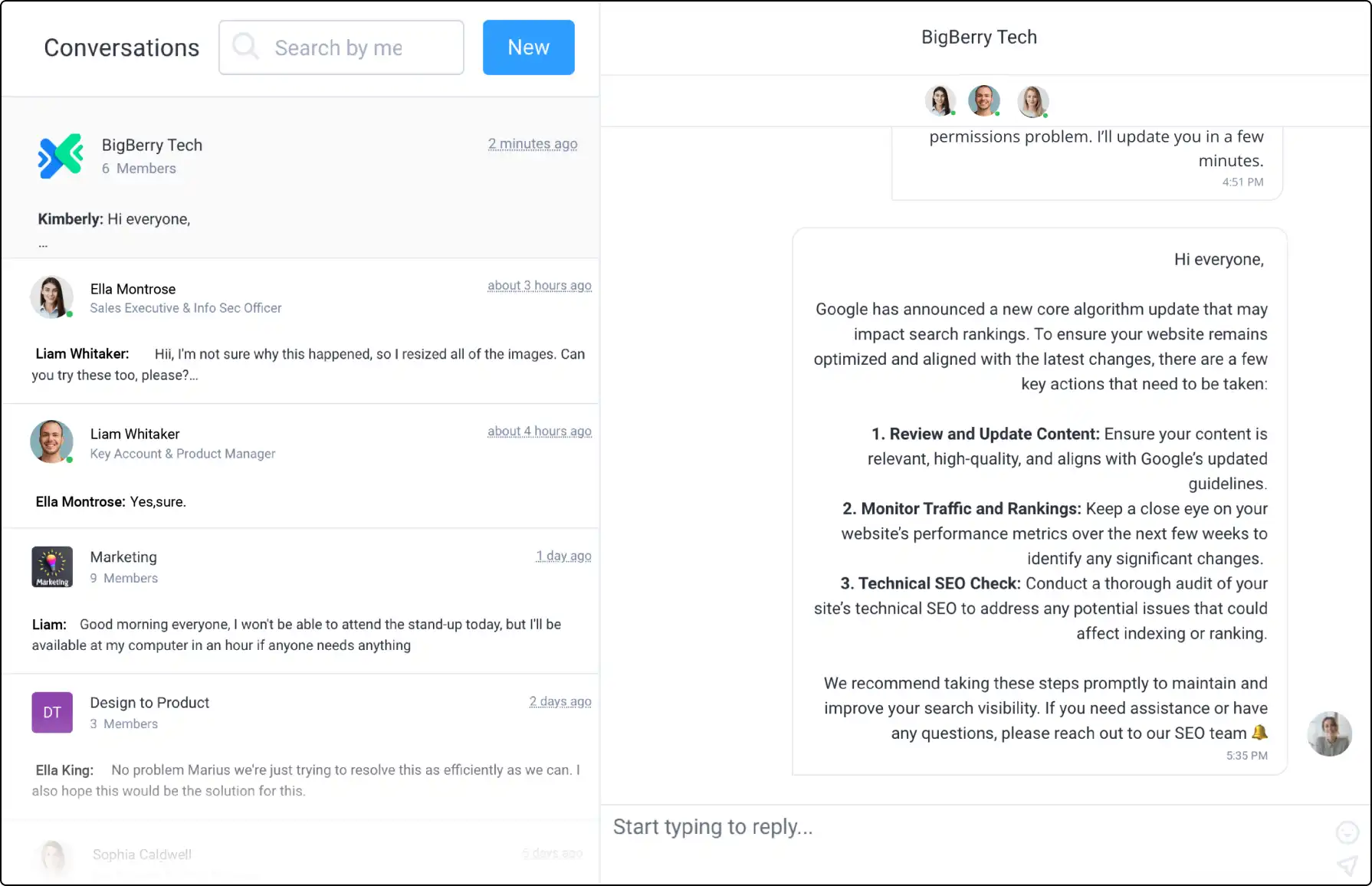
White-Label Branding
One of Clinked’s standout features is its extensive white-label customization. You can completely tailor your client portals to match your brand identity, including custom domains, logos, colors, and even branded emails. This level of customization helps reinforce your professionalism and strengthens your brand’s presence with clients.
Mobile Access
Clinked provides fully functional mobile apps for both iOS and Android devices, allowing you and your clients to stay connected from anywhere. Whether you’re sharing documents, sending messages, or updating tasks on the go, the mobile app ensures your workflow stays uninterrupted, enhancing productivity even when you’re away from the desk.
What are the Pros & Cons of Clinked?
Pros:
- Comprehensive Collaboration Tools: Offers a wide range of features to facilitate team and client collaboration.
- Customizable Branding: Allows businesses to maintain brand consistency across the platform.
- Robust Security Measures: Ensures data protection with advanced encryption and compliance standards.
Cons:
- Pricing: Higher-tier plans can be expensive for small businesses.
- Learning Curve: Some users may find it takes time to fully utilize all features.
How Much Does Clinked Cost?
Clinked offers several pricing plans to accommodate different business needs:
- Lite: $95 per month; includes 100 members and 100 GB storage.
- Standard: $239 per month; includes 100 members and 1 TB storage.
- Premium: $479 per month; includes 250 members and 3 TB storage.
- Enterprise: Custom pricing; includes 1000+ members and 5 TB+ storage.
Annual and two-year subscription discounts are available.
How to Get Started with Clinked
To begin using Clinked, you can sign up for a free trial on their website. This allows you to explore the platform’s features and determine if it aligns with your business requirements.
What are the Best Alternatives to Clinked?
Ahsuite
Ahsuite offers a user-friendly client portal with task management and collaboration tools. It provides a minimalist design that lets your work shine without distractions, elevating your professional image. Ahsuite’s intuitive interface empowers clients to find what they need effortlessly, reducing support queries and saving you time.
Copilot.app
Copilot.app provides customizable client portals with integrations for project management and invoicing. It allows businesses to streamline client interactions and manage projects efficiently.
Moxo
Moxo focuses on client interaction with features like digital automation and customization. It enables businesses to engage clients through personalized portals and streamline workflows.
SuiteDash
SuiteDash combines CRM, project management, and invoicing in one platform. It offers a comprehensive solution for businesses looking to manage client relationships and projects seamlessly.
Kitchen.co
Designed for freelancers and agencies, Kitchen.co helps manage client projects and communications. It provides tools for task management, file sharing, and client collaboration in a user-friendly interface.
Try Ahsuite
Clinked has established itself as a reliable client portal solution, providing robust features like secure collaboration, extensive white-label branding options, and powerful project management tools. Its solid reputation and comprehensive features have made it popular across industries, especially for organizations handling sensitive client interactions.
However, if you’re seeking a more budget-friendly alternative that doesn’t sacrifice functionality or ease of use, Ahsuite is a great choice. With a simpler, more intuitive interface, Ahsuite lets you create professional client portals quickly and effortlessly. It emphasizes streamlined collaboration, customizable task management, and clear client communication. Best of all, you can start completely free with up to ten portals—making it ideal for small businesses, agencies, or consultants mindful of their budget.
Ready to explore a simpler, cost-effective alternative to Clinked? Get started with Ahsuite for free today.
